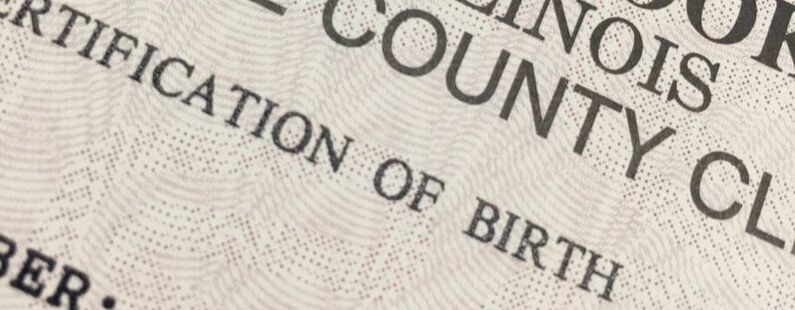 I used to think I was learning something when I found out how old a person is, but it turns out I was looking at the wrong end of the timeline. Someone’s current age will reveal something about their health or whether they'll respond to a text with "LOL" or an emoji, but the real insight comes from considering the world of their births. When Abraham Lincoln was born, Thomas Jefferson was president and Kentucky was the nation’s frontier. When Ronald Reagan was born, marijuana was legal under federal law, but banned in California, and the first radio station was nine years from launch. When Oprah Winfrey was born, she was legally prohibited from attending school with whites in her home state. These and other situations provided the backdrop for what they would read, whom they would meet, how they would perceive their communities and how they would live as adults. In a way, we have several birth years, each related to a particular type of maturity. What year was it when we first became aware of world events? What was happening in the economy when we started to earn a living, or save for retirement? What were the parenting trends when we had children, or when our parents had us? The stories of our lives are written against a backdrop of social, political, and economic events that etch their own imprint into our worldviews. I was born five weeks before Ethel and Julius Rosenberg were executed for providing nuclear secrets to the Soviet Union and 11 months before Wisconsin Senator Joe McCarthy opened his infamous hearings into Communists in our government. We held air raid drills at school, standing in front of our lockers to shield ourselves from the nuclear bombs the Soviets might drop on us. I am, in many ways, a product of the Cold War, and I have no doubt that my parents’ approach to childrearing reflected their own experiences with the Depression, World War II and the Red Scare. I joined the workforce in the 1970s, when inflation was high, stock prices were low, and oil prices were skyrocketing. Those patterns have influenced my approach to our finances for more than 40 years. If I had begun working five years earlier, or five years later, my perceptions and discipline would be much different today. Usually, we discuss age groups in wide swaths, like 18-34 or 40-65, but this generic approach hides a ton of detail that would help us understand each other better. Even our preoccupation with “generations” (Boomer, X, Y, Millennial, Zombie, Codger) mixes too many variables when it comes to understanding any specific person. Clearly, we don’t learn much when we ask someone how old they are now. The more relevant question is, “How old were you when….?” Very soon, someone important will ask you how old you were when you subscribed to Dadwrites, and “I haven’t subscribed yet,” will be the wrong answer. Avoid this incredible faux pas by subscribing today.
4 Comments
Betsy
8/18/2019 05:41:01 pm
This was a great read and very true. Loved it!
Reply
Dadwrites
8/19/2019 10:45:50 am
Thanks.
Reply
David Brimm
8/19/2019 10:20:23 am
Michael, enjoyed the blog, but I think you have your dates slightly skewed. The date of the first radio station you alluded to was not established while Reagan was in office. On November 2, 1920, station KDKA made the nation's first commercial broadcast (a term coined by Conrad himself). They chose that date because it was election day, and the power of radio was proven when people could hear the results of the Harding-Cox presidential race before they read about it in the newspaper.
Reply
Michael
8/19/2019 10:45:07 am
Reagan was born in 1911 and, as you note, KDKA aired in 1920. So, I was right, right?
Reply
Leave a Reply. |
Who writes this stuff?Dadwrites oozes from the warped mind of Michael Rosenbaum, an award-winning author who spends most of his time these days as a start-up business mentor, book coach, photographer and, mostly, a grandfather. All views are his alone, largely due to the fact that he can’t find anyone who agrees with him. Archives
January 2024
Categories
All
|
 RSS Feed
RSS Feed